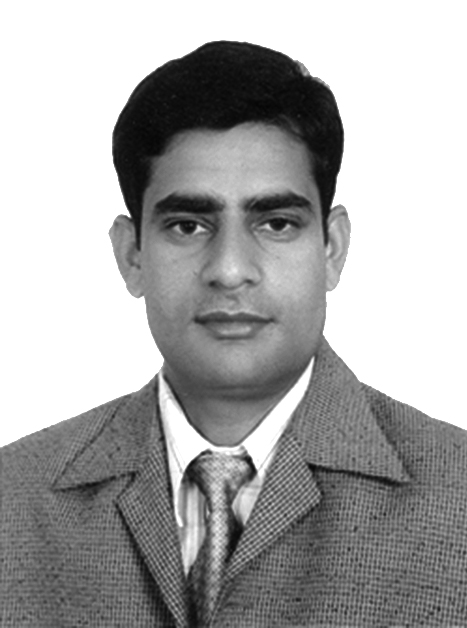Opinion
Copycats beware
Cases of plagiarism have to be dealt with academic charges as well as legal penalties
Umesh Raj Regmi
Plagiarism, which is academic theft or dishonesty, is a mounting discourse in Nepali academia. An academic work is considered to be plagiarised when the author copies and pastes somebody else’s ideas either partially or in full without any citation, reference or acknowledgement to the principal writer. This sort of trend defames the credibility and academic integrity of the person involved in such an act. In the last few years, news stories of plagiarism have been buzzing in the country. Sadly, it is connected to students of all levels, such as postgraduate students, doctoral researchers, medical researchers and popular academicians. Even the vice-chancellor of a university has been implicated.
A recent issue relating to plagiarism in Nepal is centred on the sale and purchase of academic papers, particularly theses. However, cases of uncited research articles and even the stealing of the entire copy of someone else’s work have been found to be prevalent. Although intellectual fraud is a matter of public shame, there are few instances of lawful actions taken against identified plagiarists, and exact laws and guidelines on plagiarism are not in existence in Nepal. The University Grants Commission (UGC) has recently prepared policy regarding research misconduct and the procedure for addressing allegations of research misconduct, which are, at least, likely to minimise plagiarism cases, standardise the rules for action and demotivate plagiarists in the days to come. Its efficacy and implementation is yet to be seen, however.
Forms and foundations
Inadequate paraphrasing, wholly quotable documents and ideas, absence of proper citations, using fake names, copying favourite lines without a citation, changing odd words or phrases and translating are the very common ways of plagiarism. Likewise, fabrication, falsification and unauthorised collaboration in academic writing are other constituents of plagiarism. Furthermore, the same standard applies in the case of self-plagiarism, where the author forgets or does not want to quote one’s prior academic work.
Mosaic plagiarism is a way of copying bits and pieces from various scholars’ works and changing a few words to make the work look like an original creation. Such theft is a bit more difficult to identity over verbatim plagiarism. These are the widely diagnosed forms of plagiarism being practiced in Nepal, and all of them are out of academic and research ethics. But why plagiarise at all? Most people plagiarise to get an easy degree. Laziness along with procrastination, lack of original ideas, recklessness, ignorance of academic practices and the tendency of people without any interest in research but who want a degree are the leading causes of plagiarism.
The incompetence of universities to discourage and punish such behaviour has also contributed to this growing trend. Nonetheless, all academic thefts are not intentional; they are sometimes the result of ignorance, immature writing and haste. The rare practice of obtaining the source scholar’s consent to paraphrase his or her academic work leads to unintentional plagiarism.
Process and punishment
First, the plagiarism charge needs to be justified with evidence for necessary actions to proceed. Referencing UGC’s policy for Research Misconduct 2018, administrative actions are determined by the severity, pattern, intention and gravity of the plagiarised work. But punishment will be given as per the pertinent laws and practices in the country. The proven conduct of plagiarism is punishable under the Copyright Act 2002, Section 2. The act has guaranteed economic and moral rights to the author of any creation. So, one can initiate a suit against the infringer and punish the plagiarist in accordance with this law. The punishment can be a fine ranging from Rs10,000 to Rs100,000 or imprisonment not exceeding six months, or both.
But the act is not so clear about intellectual theft. Hence, plagiarism in Nepal is legally unchecked. In Nepal’s context, plagiarised materials, if noticed during the submission phase, leads to rejection; but if noticed after accomplishment, the individual can’t be held accountable retroactively. Other actions against plagiarists include warning letters, a chance to make corrections, appeal and accusation, withdrawal of grants and fewer chances for receiving future grants. For academic professionals, a supervisory ban may be implemented. The greatest penalty in this regard is moral vindication for the accuser and diminished professional, academic and intellectual credibility of the perpetrator.
Avoiding theft
Technology and law play a vital role in stopping plagiarism. Cases of plagiarism, when identified, should be brought under scrutiny and charged with academic as well as legal penalties. For this, there needs to be a clearly marked law against such activities. Similarly, academic institutions need to set up plagiarism detecting software and virtual databases to upload all academic works for cross-verification. Allegations of fraudulent activities should be addressed promptly by the relevant agencies. There is also a need to comprehensively educate students pursuing higher degrees about issues of plagiarism, academic integrity and the value of self-creation. The original author has to be alert if anyone relies on or uses his or her products in a plagiarism attempt.
A culture of acknowledging the work of others, proper citations, correct paraphrasing and time management also help to prevent plagiarism. Stories of thesis sales and purchases, paid writers, duplication and eye-shadowing research need to be checked out thoroughly to save academic reputation and fair professionalism. If any academic or professional is found to be involved in such immoral activities, let’s not hesitate to publicise their names and take institutional action against them. Reputed universities should not be negligent in checking the academic and research works of their students. The most important thing is to maintain academic ethics and promote original work.
Regmi is associated with the Nepal Youth Foundation




 22.12°C Kathmandu
22.12°C Kathmandu










